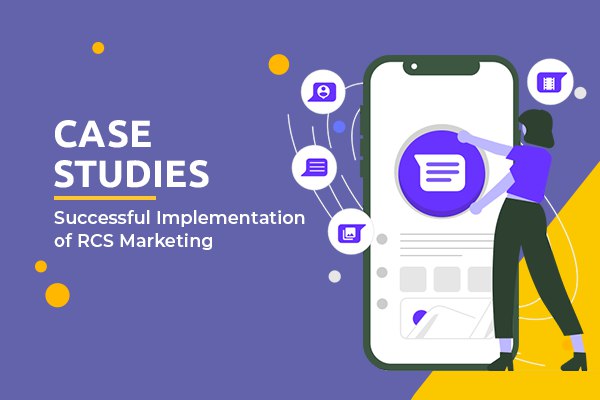The 6 Best eCommerce Website Building Platforms for Online Stores in 2024
- June 13, 2024
- e-commerce development, Website Development
As more and more consumers prefer the convenience of online shopping, businesses need to establish a strong online presence. Whether you’re starting a new venture or looking to revamp your existing online store, choosing the right eCommerce website building platform is crucial for success. In this blog, we’ll explore the six best eCommerce website building platforms for online stores in 2024, with a focus on helping you boost your business with eCommerce website development.
Why is Choosing the Right eCommerce Platform Important?
Before we dive into the platforms, it’s essential to understand why choosing the right eCommerce platform is critical for your business. Your eCommerce website is essentially your digital storefront, and the right eCommerce website development can significantly impact your online success.
It not only represents your brand but also plays a pivotal role in attracting and retaining customers. Effective eCommerce website development ensures seamless website management, enhances user experience, and drives sales. Choosing the right platform is crucial, as it can simplify operations and maximize your online potential, while the wrong one can lead to frustration and missed opportunities.
To ensure you make an informed decision regarding eCommerce website development, we’ll consider factors such as ease of use, customization options, scalability, and cost. Additionally, we’ll touch upon Proactive Digital’s effective digital marketing services, BULK SMS, and IVR Services to help you supercharge your eCommerce venture.
1. Shopify
Shopify consistently ranks among the top choices for eCommerce website development platforms, and it’s likely to maintain its status in 2024. It’s known for its user-friendly interface, making it an excellent choice for beginners. With Shopify, you can set up your online store quickly, manage products, track orders, and customize the design to match your brand identity.
Pros:
- User-friendly interface.
- Extensive app store for added functionality.
- 24/7 customer support.
- Secure and reliable hosting.
Cons:
- Transaction fees on some plans.
- Customization options may be limited for advanced users.
2. WooCommerce (for WordPress)
If you’re already familiar with WordPress, WooCommerce might be the perfect eCommerce website development solution for you. WooCommerce is a plugin that integrates seamlessly with WordPress, turning your website into a feature-rich online store.
Pros:
- No additional cost for the plugin (open-source).
- Highly customizable with various themes and extensions.
- Strong SEO capabilities.
- Active WordPress community for support.
Cons:
- Requires hosting and domain registration separately.
- May require technical expertise for extensive customization.
3. BigCommerce
BigCommerce is another strong contender in the eCommerce website development platform market. It’s known for its scalability and robust features. Whether you’re a small business looking to expand or a large enterprise, BigCommerce can accommodate your needs. It offers a range of built-in tools for marketing, SEO, and analytics.
Pros:
- Excellent scalability and performance.
- Built-in SEO and marketing tools.
- No transaction fees on most plans.
- Multichannel selling capabilities.
Cons:
- The learning curve is a bit more steep than its competitors.
- Limited free themes available.
4. Wix eCommerce
It’s known for its drag-and-drop interface, making it a user-friendly choice for those who may not have technical expertise. Wix offers a range of eCommerce website development templates and features, including product galleries and secure payment options.
Pros:
- Intuitive and easy-to-use platform.
- Extensive collection of templates.
- Competitive pricing.
- Mobile-friendly designs.
Cons:
- Limited scalability for larger businesses.
- It does lack certain features when compared to the other options.
5. Magento
Magento is an open-source eCommerce website development platform that caters to businesses with more advanced requirements. It’s highly customizable and offers a wide range of features, making it suitable for larger enterprises. While it may have a steeper learning curve, the level of control and customization it provides can be invaluable.
Pros:
- High level of customization.
- Strong SEO capabilities.
- Scalable for large enterprises.
- Active developer community.
Cons:
- Requires technical expertise for setup and maintenance.
- Hosting and domain registration are separate.
6. Squarespace
Squarespace is a website builder known for its elegant and modern templates. While it may not be as specialized for eCommerce website development as some other platforms, it’s an excellent choice for small businesses or creatives looking to showcase their products online. Squarespace offers built-in marketing tools and secure checkout options.
Pros:
- Beautiful and responsive templates.
- Integrated blogging features.
- User-friendly interface.
- 24/7 customer support.
Cons:
- Limited eCommerce functionality compared to dedicated platforms.
- May not be suitable for large-scale online stores.
Proactive Digital: Boosting Your eCommerce Business
Now that we’ve explored the top eCommerce website development platforms for 2024, let’s talk about how Proactive Digital can help you maximize your eCommerce potential.
Effective Digital Marketing Services
Proactive Digital specializes in digital marketing strategies tailored to eCommerce businesses. From search engine optimization (SEO) to pay-per-click (PPC) advertising and social media marketing, they have the expertise to drive targeted traffic to your online store. With Proactive Digital’s digital marketing services for eCommerce website development, your online business can reach a wider audience and increase sales.
BULK SMS and IVR Services
In today’s fast-paced world, communication is key. Proactive Digital offers BULK SMS and IVR (Interactive Voice Response) services for eCommerce website development to help you engage with your customers effectively. Send promotions, order updates, and important notifications through SMS, or set up an IVR system to enhance customer support and streamline operations.
Conclusion
In 2024, building a successful eCommerce business requires choosing the right website building platform for eCommerce website development that aligns with your goals and preferences. Remember, your eCommerce journey doesn’t end with website creation.
To truly succeed, consider the services offered by Proactive Digital, including digital marketing, BULK SMS, and IVR solutions. With the right platform and proactive digital strategies, your eCommerce business can thrive in 2024 and beyond. Get started today and watch your online store flourish!









